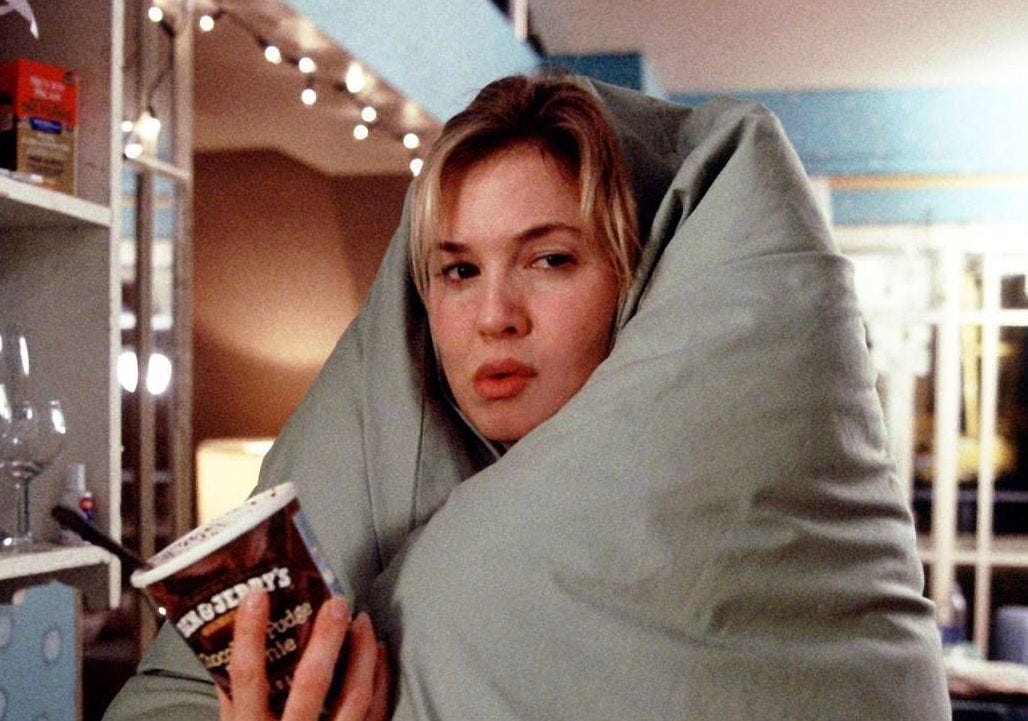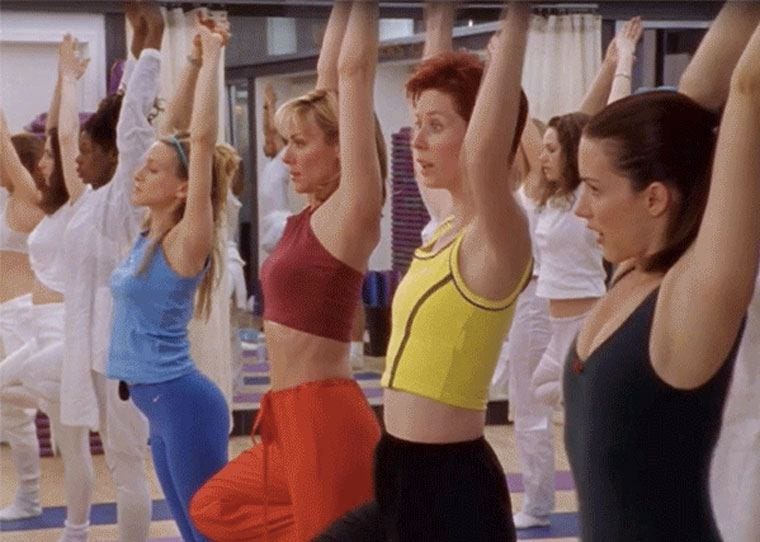Out Of Office currently runs at a loss. The weekly content and the majority of events are free, because I believe all self-employed women deserve support. By becoming a Patreon you can help keep all of this free, and as a thank you, you’ll gain free access to the monthly webinars and accountability sessions with like-minded women. If you can’t afford to support it each month, you can also make a one-off Ko-fi donation.
Morning, colleague!
This week, we have a free offer and details of two new events to combat stress and exhaustion, so make sure to read to the end. (Don’t forget, we have a lunchtime breathwork session designed to calm your mind for the week of work ahead TODAY! More below.)
It’s the second part of our stress-focused series, and this week I wanted to spend some time thinking about burn out, which as you already know is a constant struggle for me.
What exactly do we mean by the phrase, and how does it differ from general stress? “Burn out is prolonged stress,” says Bex Spiller, founder of the Anti-Burnout Club. “Most people feel stressed from day to day, that’s pretty normal. But when it takes over your life, that’s the start of burn out.” And burn out, as I know from my own experience, is when your brain and body fuse, leaving you completely incapacitated.
The symptoms of approaching trouble, according to Bex, can include anything from being snappy; failing to look after yourself properly; feeling detached or lacking inspiration; trash talking yourself; to contracting regular physical illnesses, such as catching repeated colds or stomach bugs. Burn out can also make you more susceptible to numbing activities, such as drinking, drugs or overeating, which can all be signs of feeling detached from your life.
You might also notice you’re isolating yourself (although admittedly that’s harder to tell during a pandemic!) and shutting off social relationships to conserve your energy. Of course, this is often the opposite of what would help. “You actually need social interaction to get you out of burn out. Sitting with your friends and telling them you’re stressed is helpful,” says Bex.
Long-term stress obviously isn’t a laugh-a-minute condition, but the possible toll on your health is frankly terrifying. “It can make you really ill, causing high blood pressure, high cortisol levels, diabetes or heart failure,” says Bex. “My dad was an entrepreneur and the king of burn out. He had a sudden heart attack at 60 and passed away. Excessive stress can kill you.”
It’s this experience that, in part, led her to set up the Anti-Burnout Club, an online programme of regular events (including meditation, yoga and talks) designed to reduce stress and bring back some of that elusive work/life balance. (Sound interesting? We have a free trial offer at the end of this letter).
“Burn out is almost becoming a pandemic in itself,” says Bex, who launched the Club in January and, as well as numerous self-employed people, has seen an influx of key workers signing up to de-stress.
“Women are absolutely more prone to it, based on my membership and statistics, because they’re often left trying to do everything. These days they’re running homes and businesses, and there hasn’t been a shift or a rebalancing around that. It’s too much, and it’s not achievable to do it all. Some of the challenges we do in the club include ‘brain dumps’ of listing everything, and so often women say: ‘that felt so good, I didn’t realise I was doing so much!’”
Side note: this reminded me of one of my favourite articles, the conclusion of Oliver Burkeman’s columns on happiness. I really love his first point: there will always be too much to do, so we basically have to just accept it.
What can I do if I feel burnt out?
“If you’re really struggling, the first thing to do is to speak to your GP, who may recommend some talking therapy,” says Bex. But if you’re in the ‘nip it in the bud’ stage of burn out, there are some tools that can help.
“It’s about scheduling down time into your day and treating it as the most important meeting of the day. You could start small, just five minutes, then increase it to 10, then 15,” says Bex. Equally important is what you spend those precious minutes doing. “This isn’t a time for TV or any other detachment activity, it’s time to focus on you, doing something consciously rather than on auto-pilot. You could sit and reflect, do a guided meditation, a yoga class or just some self-care, such as slathering your body in moisturiser.”
This relates to a wider theme too: learning to unplug. “Our minds haven’t caught up to the modern world, and having to be constantly switched on,” says Bex. “I have an alarm clock instead of using my phone to stop me scrolling through social first and last thing. I’ve also taken emails off my phone, and I now time-block. I was worried about unplugging from my emails, but now between 1pm – 2pm I go through my emails and do nothing else. Now I have a dedicated hour each day, it’s removed that stress about unplugging.”
As well as time to quiet your mind, a spot of exercise goes a long way. “Get moving. It’s so good for dealing with stress, even if it’s just 10 minutes around the block or a good old kitchen disco.”
Finally, it’s likely, if you’re prone to burn out, that you might be someone who’s inclined to say yes to every opportunity (guilty). If so, learning to set boundaries might be the single most important thing you do for your present and future health. “Practise saying no,” says Bex. “It’s a scary one, and people always say ‘I can’t do that!’ But trust me, you can. Practise saying no, politely, in the mirror. It might be phrases like: ‘can I get back to you?’ or ‘sorry, I can’t do that right now.’”
The challenges of taking time off
I get it, believe me, I get it. I keep failing to book any time off because ‘what’s the point?’ It’s not like I can go anywhere, or do anything. I’d literally be resting a few metres from my work desk, so shouldn’t I just go and start typing? Plus, when you’re self-employed, you still have emails coming in constantly, many of which are time-sensitive, and there’s no point in turning down work just to lie on the sofa, right?
Taking a break has never felt more challenging, but I’d argue it’s probably never been more crucial either. “I know how hard it is — I was talking to clients on my wedding day!” says Bex. “But when you’re self-employed it’s the most important element of avoiding burn out. You need to reset.”
So, for people like me (i.e. getting most of their dopamine via their work at the moment), what would a rest actually look like? I don’t fancy staying in bed for a week (in theory lovely, in reality depressing). I don’t have kids to tend to, and obviously I can’t book a holiday. I used to be quite creative, but I feel like my job drains most of that energy.
“It’s about finding balance,” says Bex. “Ask: is my entire personality my job? What else do I want to do? What else am I here for? It’s about finding things that get you excited for the weekend.”
How long does it take to reset after burn out?
If you’re making changes to your life post-burn out, how long until you start to feel better? “The time it takes is dependent on the person. Some people recover quickly, but get it again quickly as they go straight back into the same patterns,” says Bex, who has accidentally pinpointed me…
“For the long term these changes need to be built into every day, and making sure to take that time for yourself. The Pomodoro method can be really helpful for ensuring you get those breaks,” says Bex.
Find out more about the Pomodoro technique, and a video to help you try it, here.
I hope you’ve found this issue helpful. If you’re struggling right now, I completely get it. Bex has kindly offered a free seven-day trial to the Anti-Burnout Club for all Out Of Office readers! To give it a go visit theantiburnoutclub.com and select the monthly or yearly subscription, adding the code OOF2021. You can then cancel if you don’t want to continue after your free seven days. I’ve been a member since my last bout of burn out, and can honestly say I’ve found it extremely helpful.
One quick favour
…Before I launch into telling you about some up-coming events, I need your help!
If you love Out Of Office, please consider voting for me in the Newsletter Fest Awards. (It’s under the second category: Weekly/fortnightly/monthly newsletter. It’s just a click and you don’t need to give them any personal details.) Thank you.
I’m up against some stiff competition (if you don’t already subscribe to LANCE, I highly recommend it, it’s one of my absolute favourites) so I’m just very pleased to be included.
Right, events…
If you’re already feeling tense about the week’s work, join me TODAY for a lunchtime breathwork de-stress session at 1pm, led by Charlie Moult. Joining in with paid events like this are a fantastic way to help fund my work on the newsletter. Come and unclench your jaw and unknot your stomach for a calmer week of working. It’s free to Full Time Colleagues, or buy a ticket here.
I’m also holding a free ‘Stress Reset’ tea break on Friday 23rd. An opportunity to come and have a chat with other self-employed women about your stress levels. We can all have a bit of an off-load, and then share any tips or tricks we’ve found helpful for reducing our stress levels too. A problem shared is a problem halved, as they say! Free tickets here.






